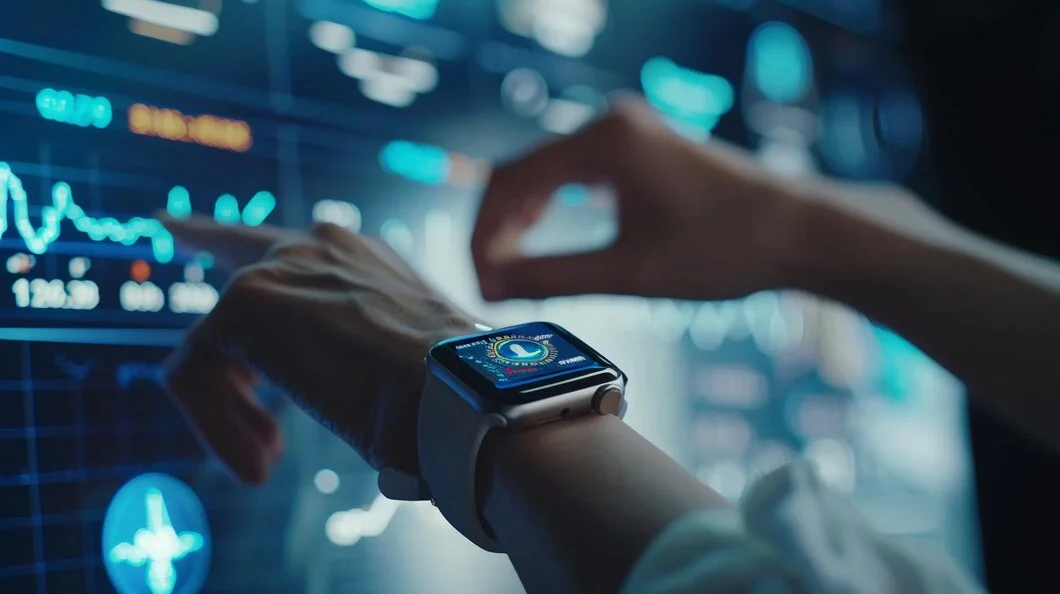Introduction
In the rapidly advancing world of healthcare technology, the shift from wearable devices to implantable ones marks a significant evolution. This transition, once a concept of science fiction, is now becoming a reality, offering new ways to monitor, manage, and enhance human health. While wearables like fitness trackers and smartwatches have already empowered individuals to take charge of their well-being, implantable devices promise to take healthcare to a new level of precision, immediacy, and personalization.
The Current Landscape: Wearable Technology
Wearable technology has become an integral part of modern life, enabling users to monitor various aspects of their health and fitness in real-time. Devices like smartwatches, fitness trackers, and health bands offer insights into physical activity, heart rate, sleep patterns, and more. The appeal of these devices lies in their convenience and accessibility; they are user-friendly, widely available, and can be easily integrated into daily routines.
Integration with Mobile Apps
One of the key strengths of wearable devices is their seamless integration with mobile apps. These applications allow users to track, analyze, and interpret their health data over time, enabling more informed decisions about lifestyle and fitness. For example, individuals can set personalized fitness goals, monitor chronic conditions, and adjust their habits based on data-driven insights. This real-time feedback loop empowers users to take proactive steps in managing their health.
Beyond Wearables: The Rise of Implantable Devices
As technology advances, the limitations of wearable devices are becoming more apparent, particularly in their ability to provide continuous and precise health data. This is where implantable devices come into play, offering a deeper level of integration with the human body. Unlike wearables, which monitor health metrics from the outside, implantables operate from within, providing real-time, continuous data that can be used for more accurate diagnoses, timely interventions, and personalized treatment plans.
Implantable Sensors and Biochips
At the forefront of this technological shift are implantable sensors and biochips. These miniature devices can be embedded under the skin to monitor specific biomarkers such as glucose levels, oxygen saturation, or even brain activity. For instance, implantable glucose monitors for diabetes patients provide continuous data on blood sugar levels, allowing for immediate adjustments in insulin dosage. This level of accuracy and immediacy is unmatched by external devices.
Neurostimulation and Brain-Computer Interfaces
Another exciting development in the realm of implantables is the use of neurostimulation and brain-computer interfaces (BCIs). These technologies, which involve implanting devices directly into the nervous system, have the potential to revolutionize the treatment of neurological disorders. For example, deep brain stimulation (DBS) devices, already in use for conditions like Parkinson’s disease, modulate neural activity to reduce symptoms and improve quality of life. As research progresses, BCIs could enable individuals with paralysis to control external devices, such as prosthetics, using only their thoughts.
Medical Applications: Transforming Disease Management
The implications of implantable devices in disease management are profound. For patients with chronic conditions, such as heart disease or epilepsy, implantables offer continuous monitoring and the ability to detect anomalies before they become critical. This real-time data can trigger immediate interventions, such as sending alerts to healthcare providers or automatically administering medication.
Implantables in Chronic Disease Management
In the management of chronic diseases, implantable devices can be life-changing. For example, patients with heart conditions can benefit from implantable cardioverter-defibrillators (ICDs), which monitor heart rhythms and deliver shocks to correct life-threatening arrhythmias. Similarly, epilepsy patients can use neurostimulators that detect seizures and modulate brain activity to prevent or lessen their severity.
The Potential of Personalized Medicine
Implantable devices also play a crucial role in the development of personalized medicine, where treatment plans are tailored to the individual’s unique biological makeup. By providing detailed and continuous health data, these devices enable more precise diagnoses and treatment regimens. For instance, cancer patients might one day receive implantable sensors that monitor tumor markers, allowing oncologists to adjust therapies in real-time based on how the tumor responds.
Ethical and Social Considerations
The integration of implantable devices into healthcare, while promising, raises significant ethical and social questions. As these technologies become more prevalent, it is crucial to address concerns related to privacy, security, and the potential for human enhancement.
Privacy and Security Concerns
One of the primary challenges associated with implantable devices is the protection of sensitive health data. Unlike wearables, which can be easily removed, implantables continuously collect and transmit data, often wirelessly. This constant flow of information creates potential vulnerabilities to hacking or unauthorized access. Ensuring robust security measures, including encryption and secure data storage, is essential to protect patient privacy.
The Ethics of Human Enhancement
As implantable devices evolve, they are not only being used for therapeutic purposes but also for enhancement. This raises ethical questions about the extent to which technology should be used to augment human abilities. For example, brain-computer interfaces could enhance cognitive functions or physical abilities beyond what is naturally possible. The implications of such enhancements on society, equality of access, and what it means to be human are complex and require careful consideration.
Future Trends: Where Health Tech is Heading
The shift from wearables to implantables is just the beginning of a broader trend towards more integrated, personalized, and precise healthcare. As research and development in health tech continue to accelerate, we can expect to see several key trends shaping the future.
Biodegradable and Temporary Implants
One promising area of research is the development of biodegradable or temporary implantable devices. These devices could provide the benefits of implantables without the need for surgical removal, as they would naturally dissolve or be absorbed by the body after fulfilling their purpose. This innovation could significantly reduce the risks associated with permanent implants and expand their use in short-term applications.
AI-Driven Implantables
The integration of artificial intelligence (AI) with implantable devices could lead to a new era of smart health tech. AI algorithms could analyze the data collected by implantables in real-time, providing predictive analytics and decision support for healthcare providers. For example, AI-driven biochips could detect early signs of disease and recommend preventative measures before symptoms even appear.
Regulatory and Ethical Frameworks
As implantable technologies advance, the need for comprehensive regulatory and ethical frameworks becomes increasingly important. Governments, healthcare providers, and tech companies must collaborate to establish guidelines that ensure the safety, efficacy, and ethical use of these devices. This includes addressing issues of consent, data protection, and the equitable distribution of technological benefits.
Conclusion
The journey from wearables to implantables represents a significant leap forward in healthcare technology. While wearables have already empowered individuals to take control of their health, implantables offer the promise of even greater precision, immediacy, and personalization. As we stand on the cusp of this new frontier, it is essential to balance the incredible potential of these technologies with the ethical, privacy, and societal implications they bring. The future of health tech is bright, and as implantables become more integrated into our lives, they hold the potential to fundamentally transform how we understand and manage our health.



